National Effort Brewing to Restore Doctor-Led Practice of Medicine
Opinion Advocates for ideas and draws conclusions based on the author/producer’s interpretation of facts and data.
This is the 15th installment in an ongoing investigative series, launched in December 2022, about CareMount/Optum/UnitedHealth and broader concerns about corporate healthcare.
By Adam Stone
Anyone who has been following my now roughly 16-month-old series on CareMount/Optum/UnitedHealth knows that while I’ve been investigating the local impact of the rapidly expanding corporate control of our healthcare, I’ve also been exploring the complex web of interconnected national issues.
While there’s a desperate need to shine a bright spotlight on the widening abuses, I’ve also been eager to identify potential solutions.
At the end of the day, most of the problems appear to be a symptom of the widely-chronicled fact that physicians, by and large, are no longer autonomous professionals, and our system is instead run by soulless, incomprehensibly massive corporations.
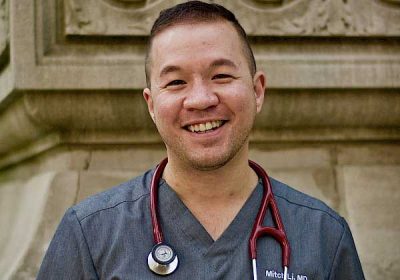
Thankfully, there’s a doctor and an organization staking out a leadership role in the effort to reclaim the physician-patient relationship.
Last week I interviewed Dr. Mitchell Louis Judge Li, a 37-year-old practicing physician, who started Take Medicine Back in 2021 to try and restore doctor control of emergency care, now in the hands of private equity and international business entities.
The group’s influence is quickly growing, ambitiously pushing to expel corporate influence from the broader medical profession.
“We’re talking about taking the profession of medicine back from the inside,” Li said in our phone interview last week. “So it’s acknowledging that the profession of medicine has lost its way and lost its ethics. It’s lost its ethical basis. We have essentially let our organizations and our profession become captured by the corporations.”
Corporate Practice of Medicine
Last month, in Oregon, a landmark bill aimed at reducing corporate influence in healthcare stalled in the state Senate.
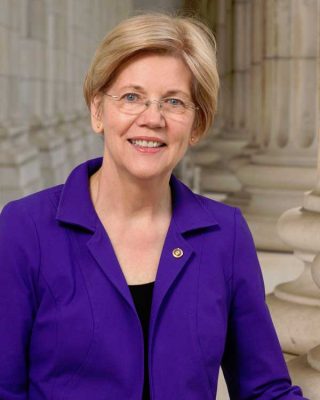
But several sources have told me in recent weeks about a measure that is possibly brewing on the national level to address the rapidly widening crisis.
The Corporate Practice of Medicine doctrine, referred to as CPoM, emerged in the early 1900s with the aim of safeguarding the physician-patient relationship against corporations prioritizing profits over patients.
Take Medicine Back laments how at least 34 states, including New York, have policies in place to prohibit or discourage corporate-run medicine, yet the regulations go essentially unenforced.
Before I connected with Li, I’d been hearing that Sen. Elizabeth Warren (D-Mass.) may propose sweeping federal legislation as soon as this summer.
Li was understandably intent on not publicly speculating about Warren’s strategy, while wanting to remain candid in answering my questions.
I asked about the senator’s plans.
“We’ve had a very good relationship with Sen. Warren’s team, her health policy advisors and then some,” he said. “And that we are extremely pleased that she has endorsed our summit or participated in our summit event from afar. She understands the Corporate Practice of Medicine. She understands the doctrine and the importance of it. And we are seeing a similar response from the Federal Trade Commission and Department of Justice.”
‘Arc of Ten Months’
I asked the senator’s press contacts to verify what multiple sources have told me about a potential bill.
Her office has not yet replied to my questions and request for comment but the conversation comes at a watershed moment for healthcare in Warren’s home state of Massachusetts.
News broke last week that Steward Healthcare is attempting to sell its assets in the state, including physicians’ networks and hospitals, to UnitedHealth Group.
“Optum, a UnitedHealth Group subsidiary, is already the largest employer of physicians in the country, controlling over 10 percent of American doctors, which means this deal raises significant antitrust concerns in Massachusetts and nationally,” Warren said in a prepared statement included in press reports last week.
In fact, news of Optum’s machinations to expand its footprint in Massachusetts speaks to the urgency Li has stressed in the need for immediate action.
“The practices go bankrupt because private equity drains them of their resources and saddles them with debt, then they’re more vulnerable to being bought out by UnitedHealth,” he told me. “[The dominoes are] falling. This isn’t like an arc of 10 years. This is an arc of 10 months before Optum owns everything they want to.”
Around here, the facility we previously called CareMount Medical (and MKMG/Mount Kisco Medical Group before that) became part of Optum Tri-State in 2022, bringing together Riverside Medical Group, CareMount and ProHealth Care.
It’s now under the Optum East umbrella.
With more and more doctors leaving in disgust, local patients are deeply anxious about dwindling access to care.
Just last week, Oregon Medical Group, an Optum-run outfit, alerted a large volume of patients that the organization can no longer treat them following an exodus of doctors, as reported by The Oregonian newspaper.
Vertical Integration
About six months ago, in October, Li published a white paper with a pair of other physicians and group co-founders, Dr. Sailesh Konda, and Dr. Robert McNamara, titled “The Corporate Practice of Medicine: A Call to Action to Take the Profession Back from Corporate Interests.”
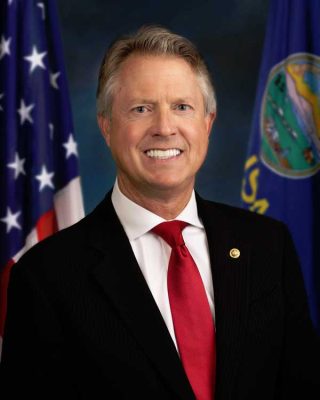
The paper seeks disciplinary action against physicians aiding CPoM, requests reexamination by federal authorities on rulings prohibiting ethical restrictions on physicians, advocates for state attorneys general to enforce prohibitions and asks for enhanced physician due-process rights and peer review reform.
“We call for the introduction of a federal prohibition on the corporate practice of medicine as a requirement of federal funding, recognizing the widespread failure of state prohibitions from protecting the public,” the paper asserts. “We call for a critical analysis of federal programs that incentivize consolidation and vertical integration.”
There also appears to be some bipartisan appetite for reform.
On the right, there’s sizable pockets of populist backlash against corporations running our healthcare, instead of doctors.
Sen. Roger Marshall (R-Kan.) brought his experience as an obstetrician to a taped message he delivered last year to the Take Medicine Back group, addressing the fact that emergency medicine physicians lack due process and can be easily retaliated against.
“I saw the future of docs being treated like a commodity that could be bought and traded at the whim of people who had never seen a patient, who couldn’t take up blood pressure or start an IV,” Marshall stated in his video about his experience. “Look, very simply, one of the main reasons I came to Congress was to put docs and nurses back in charge of healthcare.”
Marshall also slammed the Affordable Care Act, known as Obamacare.
Signed into law by former Democratic President Barack Obama on Mar. 23, 2010, there’s a bizarre aspect of the debate over the law, which now helps insure more than 40 million Americans.
Pilloried as “socialism” 14 years ago, the law (which has some significant and politically popular upsides) has also served as a problematic government-sanctioned windfall for private insurance companies, inspired by Republican Romneycare in Massachusetts, circa 2006.
Poster Child
But don’t misunderstand. Legislative change won’t come easy, especially given UnitedHealth’s heavy investment in donating campaign cash to officeholders and office seekers, Republicans and Democrats alike.
Records show the company has already directed nearly $11 million on lobbying this year, making it one of the top spenders in the nation, according to the OpenSecrets digital database.
As for UnitedHealth’s role in the broader crisis – the corporation has exhibited a clear desire to essentially become America’s healthcare system – I asked Li how much focus needs to be on this one particularly insidious insurance, data analytics, prescription services and sick care pariah.
The Minnesota-headquartered company’s $450 billion-plus market capitalization gives it an economic scale larger than most nations – more than 150 of the world’s 195 countries maintain GDPs far smaller than UnitedHealth’s financial worth.
“They’re the poster child of vertical integration,” Li replied. “Private equity is the gasoline onto the fire of corporate greed and consolidation, which enables corporate greed. And UnitedHealth is the epitome of consolidation, vertical and horizontal.”
Paper Chase
The way corporate entities stealthily aim to avoid accountability is through essentially sham ownership structures.
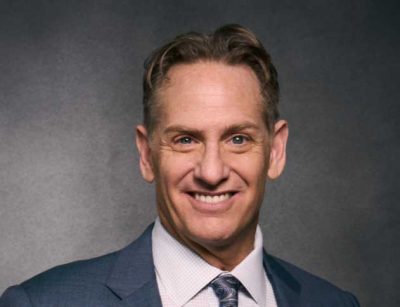
Although the vast majority of doctors enter healthcare for the right reasons, and are just as (if not far more) frustrated as the patients about the byzantine corporate vortex, there are bad apples who have unambiguously sold out for the money and “prestige,” taking on clinical leadership roles in name only.
“The corporations have employed a paper owner, a figurehead physician to appear that they own the corporation on paper,” Li said. “And you can track this back – Optum uses it, Amazon uses it. Every single tech company that practices medicine uses it. It’s a physician who is aiding and abetting the illegal corporate practice of medicine.”
Part of the emerging legislative effort is designed to close loopholes in state laws that have allowed for the ill-intentioned, shady scheming.
Because I’m not anything close to a full-time healthcare journalist, moonlighting as a columnist, it’s been fascinating to discover how all of the issues I’ve reported on about the local Optum takeover are emblematic of industry-wide concerns.
The upcoding claims, access issues, oppressive employment contracts, predatory marketing, patient privacy concerns, slumping morale and much more are all manifestations of an oligarchic-type control of healthcare, with unbridled corporate greed spreading like a metastasizing cancer throughout the U.S. system.
By next month, I’m also slated to receive another batch of Freedom of Information Law (FOIL) documents. Records I’ve published throughout this series have shown vast patient frustration with CareMount’s alleged double billing, under scrutiny by New York Attorney General Letitia James’ Health Care Bureau.
‘Too Big to Operate’
As a business owner myself, I’m a passionate believer in the moral underpinnings of open markets and the ability of responsibly-regulated capitalism to harness innovation and produce positive change.
However, this closed-market, crony capitalism sick care system primarily serves the interests of a tiny number of faceless profiteers, and Li pushes back hard on any suggestion that the large operators have become “too big to fail.”
“No, it’s too big to operate,” he replied, when I asked about that notion. “The system by nature of being too big and too consolidated is failing. So, no, I don’t buy that even remotely.”
The Feb. cyberattack on Change Healthcare (a company United acquired for $13 billion despite a 2022 effort by the federal government to thwart the deal) is a stark example of that failure, as the U.S. system continues to reel from the fallout over stalled payments, with the backlog totalling an astounding $14 billion last week.
Medical information is required to be safeguarded by law, through the Health Insurance Portability and Accountability Act, better known as HIPAA.
But the attack further exposed the threat to our private patient data.
“It’s not too big to fail,” Li observed, “it has already failed.”
Optum’s press office stopped replying to my requests for comment last year.
“Our three medical groups have the expertise, experience and dedication to create exceptional, personalized experiences for our patients, their families and our communities,” states a portion of a prepared comment the company issued to us in 2022.
‘Canary in the Coal Mine’
There’s also growing alarm among experts about our current system’s inability to manage a national medical emergency, which has caught the attention of the Department of Homeland Security.
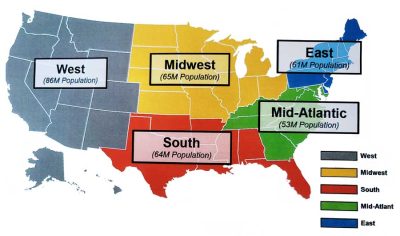
The Federal Trade Commission, the Department of Justice and the Department of Health and Human Services announced a joint inquiry early last month into the impact of corporate greed in healthcare, focusing on private equity’s role in harming patient health, worker safety, care quality and affordability.
“Emergency medicine is kind of the bellwether of the system, and we’re the canary in the coal mine,” said Li, who has had many conversations with federal officials probing the issues. “Everything bad and broken with America just ends up in the ER.”
A technician I spoke to at Northern Westchester Hospital last week lamented the surge in ER visits over the past three years, pointing to patient struggles in accessing timely care for medical issues as overwhelmed urgent care facilities often lack necessary testing capabilities, leading to eventual referrals.
New York City residents have also been unnerved recently by the wrangling between Mount Sinai Health System and UnitedHealthcare, with doctors nearly removed from the insurance company’s network.
Patients breathed a momentary sigh of relief last month when a deal was struck.
But it’s critical to remember how the negative manifestations of profits-over-patients sick care are not abstractions.
Case Study
For example, here in our backyards, Pleasantville’s Dennis Turenchalk, 76, shared his frustration with me about Optum after experiencing double vision, ending up at Northern Westchester Hospital on Mar. 22 and staying overnight. Tests came back negative for a stroke but he was advised to see his doctor.
The longtime pharmacist, who retired from Phelps Hospital last year, phoned Optum internal medicine last Monday, stating how he needed to see his new doctor for a follow-up visit as soon as possible.
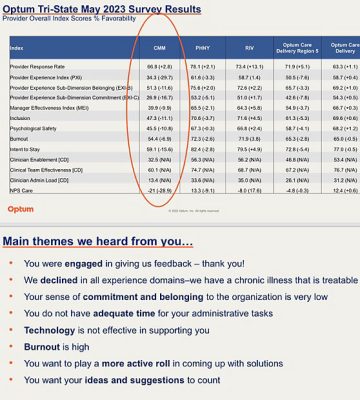
But he was told he couldn’t have an appointment for at least 30 to 60 days, and it would have to be with a nurse practitioner.
The soonest Turenchalk would be able to see a medical doctor would be next January.
“It was incredulous to me that a 76-year-old man who was discharged from a hospital would have to wait that long,” Turenchalk recounted. “I felt my condition deserved more than a (nurse practitioner).”
Working in hospitals his entire career, Turenchalk said he knows his health circumstances demand attention from a doctor.
“I just think in that kind of situation, you need to see a physician,” he said in a brief phone interview last week. “It’s my gut instinct, and I think most people would agree with me.”
But it’s why medical corporations push the umbrella phrase “providers” on patients, as a not-so-subtle way to demean the unique expertise of skilled doctors.
“Nobody knows what a physician is anymore,” Li stressed in our interview. “Everybody’s called a provider. And you see a nurse practitioner who wears a long white coat and has a tenth of the training, but they have the backing of the corporations.”
As truly wonderful as nurse practitioners tend to be in the overwhelming majority of circumstances, they’re simply and literally not doctors – although they are many of the smartest, most passionate people in healthcare, and a blessing for countless patients.
Code Pushers
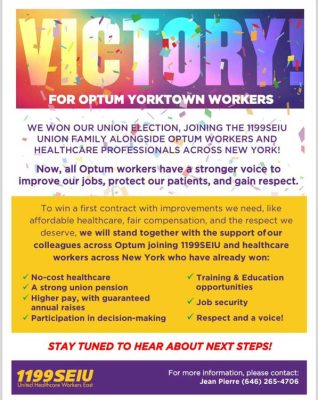
In February I obtained internal company correspondence that confirmed a Department of Justice investigation into the organization’s alleged monopolistic practices, and also penned a piece last month detailing whistleblower allegations about United/Optum efforts to defraud Medicare – aka you, the federal taxpayer.
My inbox has since been inundated with hundreds of stories from insiders, experts and patients about the organization’s widespread and dangerous alleged plans to control and manipulate our collective care for profit.
I’ve only been able to correspond with a miniscule fraction of the sources, given the volume. But the accounts are head spinning.
For example, a healthcare business administrator with firsthand experience at a major Optum medical center on the West Coast corroborated allegations in my past reporting of systemic Medicare fraud disguised as coding accuracy.
The source said they reached out to me because they wanted to “validate that not only are all of the allegations your article touches on true, but the situation is not unique to the tri-state area.”
She added how it is also true for “all of the Optum USA regions.”
“I know this because as a business administrator, not only do I watch my doctors receive vague threats to their financial incentives for missing codes and not ‘agreeing’ with codes that our DataCore system ‘suggests’ to them based on the patient history, I’m held personally responsible for pushing these codes on them and making sure that they review all of their suggested sister codes weekly,” revealed the source, who requested anonymity to protect herself from retaliation.
Do Not Pass Go
I also interviewed Dr. Scott Ellner last week, a general surgeon and Montana medical executive with two decades of experience who studied healthcare law at Harvard.

He was at the American College of Healthcare Executives Congress last week, where these types of conversations animated the discussion.
I asked what can be done to address the unchecked power of corporations like UnitedHealth Group.
“Break them up,” the doctor replied in our phone interview. “They’re buying up physicians, they’re buying up the technology that’s out there to essentially monopolize or attempt to monopolize the market, the industry.”
Separately, I recently obtained an internal e-mail authored by Optum East’s Dr. Kevin Baran, which was provided to me two weeks ago by an anonymous outraged local physician.
The message provides additional insight into my reporting last month about a whistleblower’s claims of Medicare abuses.
Baran noted in his e-mail how he’s collaborating with Optum leadership on clinical documentation.
A whistleblower had told me how the effort is actually Optum’s way of adding more health issues to patient charts, displaying more risk, and thus generating more revenue from the federal government.
“Many of the clinical conditions which are highlighted are subtle in their meaning and ones which were not emphasized in our training,” the March e-mail from Baran stated. “As an example, secondary hyperaldosteronism, morbid obesity, and secondary hypercoagulable state are conditions we treat every day, but now we are being asked to put them on our problem list and assess their stability. With the proper education, these conditions can be highlighted, treated and discussed with patients. This is not meant to be punitive, time consuming, or redundant.”
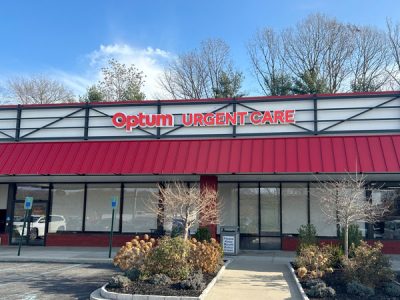
And what’s the subtext?
“Coding visits to get the most (money) out of insurance/Medicare,” a local Optum physician told me through a trusted intermediary.
This all unfolds at a time when a growing number of physicians are speaking out over their frustration with Electronic Health Records and the technology’s nature to help enable upcoding, raising deep concerns about the way artificial intelligence can leverage flawed data in diagnosis selection to widen profits.
‘We Won’
A longtime UnitedHealth/Optum nurse also contacted me to raise grave concerns about Optum’s so-called HouseCalls program, basically a yearly wellness visit to patient homes.
Although the nurse said the program seems like a “nice benefit for the Medicare Advantage members on the surface,” she now understands the bigger financial picture.
“I question so many things, especially upcoding and ‘buddy’ coding issues that are being pushed on the practitioners to dig for during a visit,” the nurse said.
On an anecdotal level, at least locally, there’s also growing energy around resisting the unacceptable status quo, including among the beleaguered healthcare workers grappling with abuses from the inside.
Just last week, Optum’s Yorktown workers triumphed in their union election, following Brewster’s footsteps last year.

They forged an alliance with the 1199SEIU union, joining with Optum workers and healthcare professionals from across New York, asking for secure jobs, superior compensation, better patient care and general dignity.
“We won!” one source exclaimed to me last week in an e-mail, noting how 54 of 59 workers voted “yes.”
(Insiders also told me that organizing efforts are continuing to build strength at Optum facilities across the Hudson Valley, at former CareMount buildings.)
‘Impeding Patient Care’
Meanwhile, local residents like Ossining’s Maddie Hunter are pushing grassroots activism, including with letters to the editor sent to newspapers like ours.
“Engaging in practices to manipulate patient diagnoses so that their billing results in larger revenues is disturbing and fraudulent,” Hunter writes in an Examiner letter to the editor this week. “Equally upsetting is knowing that United Health, along with the other providers of so-called Medicare Advantage plans, participate in excessive denial of claims, delays of service and predatory marketing schemes, all with the goals of maximizing profits while impeding patient care.”
It’s important to emphasize how before the later part of the 20th century, the U.S. healthcare system operated with infinitely less corporate influence, yet within a generally free-market framework.
In just the past decade, there’s been a trillion dollars’ worth of private equity transactions in healthcare – yes, that’s trillion with a ‘t.’
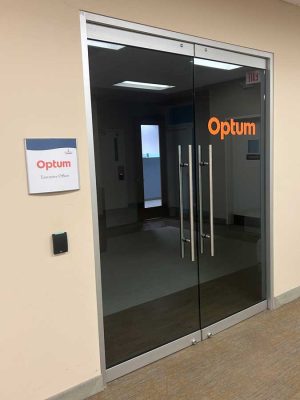
The ramifications of big money and Big Data’s influence are impossible to overstate.
Last week, for instance, I had a preliminary interview for a future piece with an Optum whistleblower who detailed how bonuses are now allegedly incentivizing healthcare professionals to make unethical hospice referrals, all within the context of Optum’s growing role in treating dying patients through palliative care.
Stay tuned for that story.
Bots and Bean Counters
While some might argue (albeit a seemingly dwindling number) that the current system promotes efficiency and innovation, mounting evidence demonstrates what we’re all experiencing: inflated costs and compromised quality of service.
On a deeper level, there’s also something fundamentally human in the desire to see doctors lead healthcare, not corporate entities powered by bots and bean counters.
As a reporting-based opinion columnist, I’ll share how I believe there’s a spiritual component to reforming healthcare in a way that is economically sustainable while elevating holistic wellness.
What unites all great philosophical and religious traditions, at least in theory, is a doctrine that prioritizes compassion.
A healthcare system with love at the forefront might sound squishy. But it has existed, generally speaking, in this complex world of ours in the past.
However, you can’t legislate love. Yet you can restore conditions that would once again allow good, empathetic doctors to practice thoughtful care.
The mammoth problems are not too late to fix, even though experts do worry that the point of no return is approaching.
We need to demand change, and our leaders need to act.
Right now.
Adam Stone is publisher of Examiner Media. E-mail him with tips and feedback at astone@theexaminernews.com.

Adam has worked in the local news industry for the past two decades in Westchester County and the broader Hudson Valley. Read more from Adam’s author bio here.
